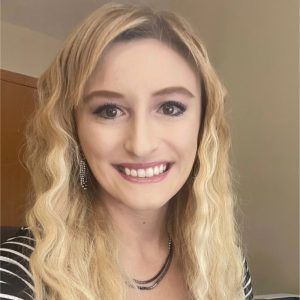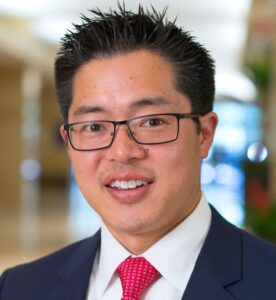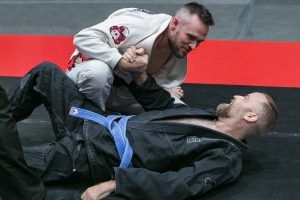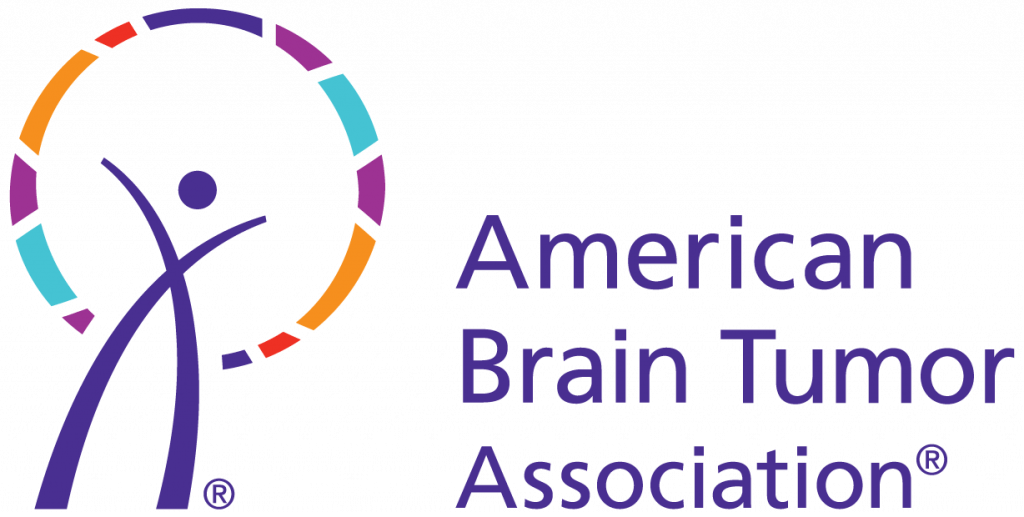It’s never a wrong time to redefine yourself—whether it’s the new year or after a major life event. For Bri Salsman, a surprise brain tumor diagnosis set her on a quest to live a more fulfilling life. In this Q&A, discover how Bri took the reins and read her tips for others wanting to make a change.
When were you diagnosed with a brain tumor and how are you doing now?
It was just after New Year’s in 2017. I was having migraine headaches, which I’ve had many before. I knew what I needed to do to make it go away. But this time, the headache didn’t go away. I woke up the next day with vision problems in my right eye that kept getting worse. My colleagues convinced me to go to immediate care. I thought they were going to give me prescription-strength migraine medicine, but within minutes, they told me I needed to go to the ER.
Not thinking it was a big deal, I walked the six blocks to the nearest hospital in Chicago. When I got there, I waited several hours before I was seen (lesson learned about not calling an ambulance). By the next morning I was admitted to the hospital, and Friday, I was in surgery to remove a meningioma.
It all happened so fast—I had my biopsy and tumor resection done at the same time. My surgeon said it was a textbook success except for a small part they couldn’t remove next to my optic nerve.
It’s been seven years since my diagnosis, and I’m fortunate to be doing so well. I’m not in treatment—I just get routine scans every couple years now.
How did you return to life as normal after everything that happened?
My surgery was just a couple weeks before my 32nd birthday. Up until my diagnosis, I had the “someday” mentality. You know, “I’m young. I’ve got plenty of years left.” But my experience, which could have been debilitating, was more of a reckoning that sent me down a path of self-reflection and evaluating every aspect of my life.
I had to really make decisions on whether I wanted to live the way I was, and then take action on making those changes. My experience was a form of post-traumatic growth, almost the exact opposite of post-traumatic stress.
My first change: I was working in a dental office and my supervisor at the time was not very understanding or supportive in my recovery. So less than a month after surgery, I gave notice without another job in hand. I just knew I couldn’t stay there. That was the moment of, “Who is this…leaving without another job in hand? This is not who you are.” But at the same time, it just felt right.
That was a bold decision. How did that experience lead you to coaching?
After I left my job, I started working with a career coach to figure out what I wanted to do next. That really opened my eyes to coaching. I decided to get certified as a life coach and use these skills in my next career, whatever it was. The process was rigorous, but it helped me evaluate other areas of my life—like core values and relationships.
I was working with practice clients and they started asking me what I would charge if I kept working with them…I wasn’t even thinking about that at the time. But they continued sharing my information with their own networks, and my coaching really snowballed. That led me to creating my own business.
What’s the context around your business name, “Life Lived By Design”?
In simple terms, it means your life is largely what you choose it to be. There may be unexpected things or surprises along the way, like a brain tumor diagnosis, but you play an active role in the design process of building the life you want to live.
I work with a variety of people, but mainly women who are in “the gap.” It’s a space where you’re looking back and know you don’t want to live life the way you have been anymore… you may not know what’s next. But you’re willing to redefine who you are going to be moving forward.
I always wanted my business to be virtual, which has allowed me to serve international clients. It also supports my passion of traveling; I wanted to be able to travel anywhere (like Barcelona!) for a period of time until I’m ready to move on to my next place. I want to set the example for my clients by living my life by design.
What’s your take on New Year’s Resolutions?
Some people need the kick in the butt to get them going and it really works for them. For resolutions, I think it’s great to review, reflect, and improve. But I see a lot of people going through the motions because it’s that time of year, all their friends are doing it, or it’s what society expects of them.
These reasons are related to external motivation—not for themselves. It’s a lever to be pulled, but if the external reward does not grow over time, it’s not going to stick. It eventually needs to kick into other motivational strategies.
For those who feel they are ready to make a change, what advice do you have?
My advice: don’t wait. If you are feeling ready to make a change for yourself, there’s no such thing as a start date.
A first step is to start with the future-self activity. Picture yourself 5-10 years from now and write down how old you’ll be. Ask yourself, “What does my future self want me to know, what message does it have for me, what lesson will I have learned over the last five years?” Engaging in this activity can help bring a lot of clarity.
My advice: don't wait. If you are feeling ready to make a change for yourself, there’s no such thing as a start date.
— Bri Salsman
Second, get clear on what your core values are, not those passed onto you by your family or societal expectations. You can go online and find lists of values. Immediately cross off things that are not it. From those remaining, circle the 10 that are important to you. Then put a star next to the five that are most important to you. Of those five, highlight the three you absolutely cannot live without.
I created a resource called “The Examined Life Workbook” that can be ordered online. The workbook has over 70 tools, strategies, and exercises that can help you increase your self-awareness and step into your true self.
How have you changed since your diagnosis and what do you see for your future self?
I’ve become abundantly clear on who I want to be, the impact I want to have… I’m not reliant on other people to tell me how I should live—I get to define that for myself. It’s allowed me to continue to build the life that I envision for myself.
In the next few years, I want to travel a lot more internationally and cross off a lot of countries that I haven’t, meet amazing people along the way, and collect some wild/crazy/fun stories. It’s great to see that all these pieces I’ve been working on for seven years are finally coming together.
Visit Bri’s website to learn more about her coaching business and order her workbook. A portion of the proceeds are donated to the ABTA. Bri is also a patient mentor through the ABTA Patient & Caregiver Mentor Support Program.
You can keep up with Bri by following her on Instagram and LinkedIn!

Jessie Schlacks
Jessie is Managing Editor of the bi-monthly e-newsletter MindMatters. Submit story ideas or questions to jschlacks@abta.org.














